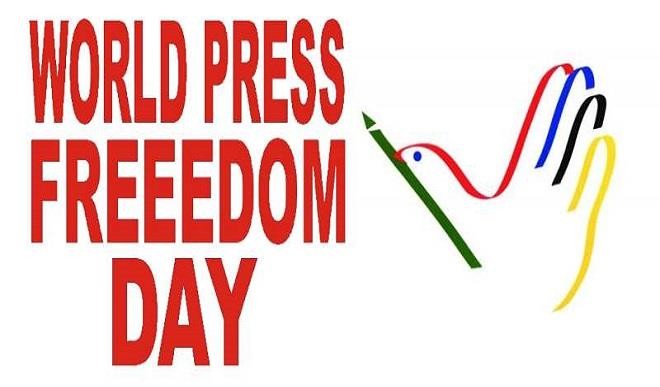WPF Day: Dangers associated with journalism practice
World Press Freedom Day is annually observed on May 3 to inform the international community about freedom of the press and freedom of expression which are fundamental human rights. World Press Freedom Day was established by the General Assembly of the United Nations in December 1993 as an outgrowth of the seminar on promoting an […]


World Press Freedom Day is annually observed on May 3 to inform the international community about freedom of the press and freedom of expression which are fundamental human rights. World Press Freedom Day was established by the General Assembly of the United Nations in
December 1993 as an outgrowth of the seminar on promoting an Independent and Pluralistic African Press. This seminar took place in Namibia in 1991 and led to the adoption of the Windhoek Declaration on Promoting Independent and Pluralistic Media.
This year’s world press freedom Day event was organized by United Nations Educational Scientific Cultural Organisation (UNESCO), it presents a wonderful opportunity to reflect on the importance of free press, intellectual freedom and the great impact that these issues have on creating a world with just and corruption free governance. The role of journalism is to bring issues of government, culture, science, environment, and society into the public light to inform the people and hopefully to spark dialogues that include the diverse public into the process of shaping public policy.
This day reminds people that many journalists lost their lives or faced jail terms in bringing daily news to the public. Media freedom and access to information feed into the wider development objective of empowering people. Empowerment is a multi-dimensional social and political process that helps people gain control over their own lives.
This can only be achieved through access to accurate, fair and unbiased information, representing a plurality of opinions, and the means to actively communicate vertically and horizontally, thereby participating in the active life of the community.
World Press Freedom Day celebrates the fundamental principles of press free to evaluate press freedom around the world, to defend the media from attacks on their independence and to pay tribute to journalists who have lost their lives in the exercise of their profession. Freedom of expression is a fundamental human right as stated in Article 19 of the Universal Declaration of Human Rights: “Everyone has the right to freedom of opinion and expression; this right includes freedom to hold opinions without interference and to seek, receive and impact information and ideas through any media and regardless of frontiers”.
However, in order to make freedom of expression a reality, there must be a legal and regulatory environment that allows for an open and pluralistic media sector to emerge, a political will to support the sector and rule of law to protect it laws thereby ensuring access to information, especially information in the public domain and the necessary media literacy skills among news consumers to critically analyze and synthesize the information they receive and to use it in their daily lives and to hold the media accountable for its actions.
These elements, along with media professionals adhering to the highest ethical and professional standards designed by practitioners, serve as the fundamental infrastructure on which freedom of expression can prevail. On this basis, media serves as a watchdog.
Ensuring freedom for the media around the world is a priority. Independent, free and pluralistic media are central to good governance in democracies that are young and old. Free media can ensure transparency, accountability and the rule of law to promote participation in public and political discourse, and to contribute to the fight against poverty.
An independent media sector draws its power from the community it serves and in return empowers that community to be a full partner in the democratic process. Freedom of information and freedom of expression are the founding principles for open and informed debate.
New technology will continue to evolve and allow citizens to further shape their media environments as well as access a plurality of sources. The combination of access to information and citizen participation in media can only contribute to an increased sense of ownership and empowerment.
Fatima Kambar and Binta Zakariya, University of Maiduguri.
